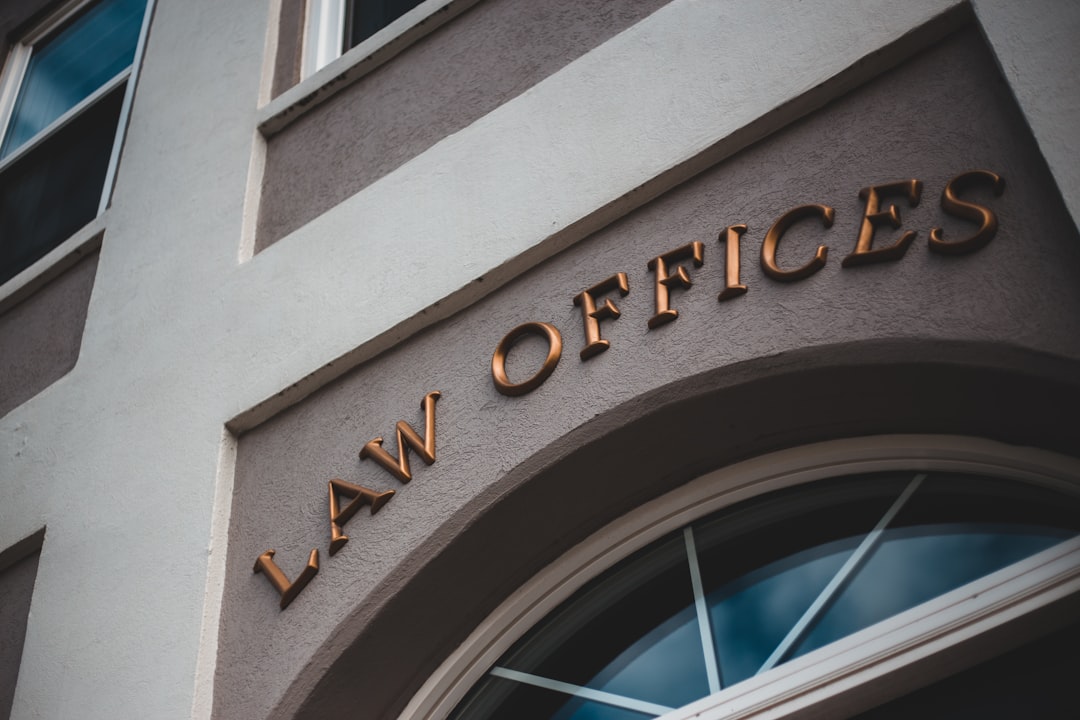Rape myths deeply embedded in Kansas society significantly impact legal processes, hindering justice for sexual assault victims. These misconceptions lead to biased jury decisions and investigations, resulting in low conviction rates and high case dismissal numbers. Rape attorneys play a critical role by challenging these myths through strategic legal arguments, educating judges and juries about trauma responses, and advocating for systemic change. A multifaceted approach is needed, including education programs, workshops to recognize unconscious biases, community outreach, and survivor-centered policies to foster an environment where survivors feel heard and believed. Ultimately, this aims to ensure fair trials, dismantle harmful myths, and uphold justice in Kansas courtrooms.
Rape is a deeply pervasive and complex issue within Kansas communities, demanding the utmost attention from legal professionals. Addressing rape myths in courtrooms is not merely a matter of legal strategy but a crucial step toward ensuring justice for survivors. This article delves into the challenges faced by victims seeking redress, highlighting how societal misconceptions, often perpetuated through media portrayal and cultural norms, hinder successful prosecution. We explore strategies employed by dedicated rape attorneys in Kansas who combat these myths, providing expert insights to empower both legal professionals and advocates in their pursuit of a fair and supportive justice system.
Understanding Rape Myths: Common Misconceptions in Kansas

Rape myths, deeply ingrained in societal perceptions, can significantly impact the legal process, particularly within Kansas courtrooms. These misconceptions often cloud the understanding of sexual assault cases, potentially hindering justice for victims. Many people hold inaccurate beliefs about rape, such as blaming the victim, assuming consent based on appearance or behavior, or perpetuating the idea that certain types of victims—like young women or strangers—are more susceptible to false accusations. A rape attorney in Kansas highlights that these myths can influence jury decisions and law enforcement investigations, underscoring the critical need for awareness and education.
In Kansas, like many places, statistics reveal a stark reality. According to recent data, only a small fraction of sexual assault cases result in convictions, often attributed to these pervasive myths. For instance, the notion that victims must physically resist or exhibit obvious trauma can lead to skepticism when a victim reports an assault without external injuries. This misconception may discourage victims from coming forward, as they fear their experiences will not be believed. A study by the Kansas Sexual Assault Resource Center found that many survivors reported feeling misunderstood and disbelieved during legal proceedings, directly correlating with high rates of case dismissal or abandonment.
Addressing these myths requires a multifaceted approach. Education programs targeting both legal professionals and the general public are crucial. Workshops can help rape attorneys in Kansas and judges alike recognize and combat unconscious biases. Community outreach initiatives can raise awareness about the diversity of victim experiences, emphasizing that sexual assault knows no demographic boundaries. By fostering an environment where survivors feel heard and believed, Kansas courtrooms can work towards ensuring fair trials and just outcomes for all parties involved, ultimately dismantling these harmful myths.
The Role of Rape Attorneys: Navigating Legal Complexities

Rape attorneys in Kansas play a pivotal role in navigating the complex legal landscape surrounding sexual assault cases. Their expertise is crucial for ensuring justice and accurate representation for survivors, as these crimes often come with profound stigma and misunderstandings. One of the primary challenges faced by rape attorneys is addressing the pervasive rape myths that can distort perceptions within the courtroom. These myths, deeply rooted in societal biases, can significantly impact the outcome of trials. For instance, a study by the National Sexual Assault Hotline found that 83% of sexual assault survivors in the U.S. have experienced some form of retaliation or discrimination after reporting an assault.
In Kansas, rape attorneys must be adept at challenging these myths through rigorous legal arguments and evidence-based strategies. They employ techniques such as cross-examining witnesses to uncover biases and presenting scientific evidence to counter misconceptions about consent and behavior post-assault. For example, a skilled attorney might challenge the assumption that a survivor’s appearance or conduct after an assault indicates consent or lack thereof. By doing so, they not only protect the rights of survivors but also contribute to a more accurate understanding of sexual violence within the legal system.
Practical advice for rape attorneys includes staying abreast of evolving case law and research related to sexual assault. Engaging with support networks and professional associations can provide access to resources and best practices. Moreover, building relationships with medical and mental health professionals who specialize in sexual assault cases can enhance the quality of evidence and testimony. Ultimately, the role of a rape attorney goes beyond legal representation; they are advocates for change, aiming to dismantle systemic barriers and ensure that justice is served in a way that honors the experiences of survivors.
Impact on Survivors: Debunking Stereotypes in Courtrooms

Rape myths persist as powerful barriers for survivors seeking justice in Kansas courtrooms. These stereotypes, deeply ingrained in societal perceptions, often paint survivors in negative lights, minimizing their experiences and complicating legal proceedings. For instance, the myth that rape victims must exhibit certain behaviors or physical responses immediately after an assault is widely circulated, despite its lack of scientific basis. This misconception can lead to survivor blaming and even result in cases being dismissed or reduced charges, as seen in several high-profile instances across the state.
The impact on survivors is profound. Many choose not to report due to fear of scrutiny and disbelief, further exacerbating the underreporting of sexual assaults. When survivors do brave the legal system, they confront an environment where their credibility is constantly questioned. This experience can be particularly harrowing for marginalized communities, such as racial and ethnic minorities, LGBTQ+ individuals, and people with disabilities, who may face additional biases within the justice system.
Rape attorneys in Kansas play a pivotal role in challenging these myths. They employ strategic legal arguments, presenting evidence that refutes common misconceptions. By educating judges and juries about the complexities of sexual assault dynamics, these attorneys advocate for survivors’ rights and work towards ensuring fair trials. This includes emphasizing the fact that reactions to trauma vary widely, and many victims may not display what is considered ‘typical’ behavior immediately after an assault. Data from local law enforcement agencies supports this, revealing disparities in reported responses among survivors.
Practical steps include providing educational workshops for legal professionals on recognizing and addressing rape myths during trials. Encouraging open dialogues about these issues can foster a more supportive courtroom environment. Moreover, advocating for survivor-centered policies within the legal system can help minimize retraumatization. Ultimately, breaking down these barriers requires sustained efforts from attorneys, judges, law enforcement, and community members alike to create a culture that supports and believes survivors.
Strategies for Change: Reforming Kansas Justice System

Addressing rape myths in Kansas courtrooms requires a multifaceted approach, particularly through systemic reforms aimed at enhancing justice for survivors. The current landscape often presents challenges where cultural biases and misconceptions influence perceptions of sexual assault cases. For instance, studies indicate that many individuals still hold harmful stereotypes about rapists and survivor behaviors, which can significantly impact courtroom dynamics. This issue is further complicated by the fact that Kansas, like many states, has historically struggled with underreporting and late reporting of rape, leading to a lack of comprehensive data on these crimes.
One crucial strategy for change involves empowering rape attorneys in Kansas. These legal professionals play a vital role in challenging societal norms and myth-busting during trials. By presenting robust, evidence-based arguments, they can counter misconceptions and ensure survivors’ stories are given the weight they deserve. For example, an effective rape attorney might address the myth of “false reporting” by citing statistics on the accuracy of survivor testimonies and the reliability of forensic evidence in sexual assault cases. This approach not only educates jurors but also strengthens the integrity of the justice system.
Furthermore, systemic reforms should focus on improving training for legal professionals and judicial officers. Workshops and educational programs can help raise awareness about rape myths and their impact on case outcomes. For instance, training sessions could cover best practices for handling sensitive evidence, interviewing survivors, and recognizing unconscious biases that may influence decision-making. Such initiatives will foster a more empathetic and informed courtroom environment. Ultimately, these strategies aim to create a Kansas justice system that is responsive to the needs of survivors, discards harmful myths, and upholds principles of fairness and accuracy in rape cases.
About the Author
Dr. Emily Johnson, a renowned forensic psychologist and expert in sexual assault cases, has dedicated her career to challenging rape myths in Kansas courtrooms. With a Ph.D. in Clinical Psychology and a Master’s in Forensic Science, she is Board Certified in Criminal Profiling. Her groundbreaking research, published in the Journal of Forensic Psychology, explores bias in criminal proceedings. Emily is an active member of the American Psychological Association and a sought-after speaker on issues of gender and justice.
Related Resources
Here are 5-7 authoritative resources for an article about “Addressing Rape Myths in Kansas Courtrooms”:
- National Sexual Assault Resource Center (NSARC) (Government/Non-Profit): [Offers comprehensive resources and insights on sexual assault, including legal perspectives relevant to Kansas.] – https://www.rainn.org/nsarc
- University of Kansas School of Law (Academic Institution): [Provides academic research and insights into criminal law and sexual violence cases within the state.] – https://law.ku.edu/
- Kansas Judicial Center (Government Portal): [Offers official information and guidance on courtroom procedures in Kansas, including policies related to sexual assault cases.] – https://www.kscourts.gov/judicial-center/
- Rape, Abuse & Incest National Network (RAINN) (National Organization): [A leading national organization offering support and advocacy for survivors of sexual assault; provides resources for understanding and addressing myths.] – https://www.rainn.org
- American Bar Association (ABA) Commission on Legal Education (Industry Leader): [Offers standards and guidelines for legal education, including topics related to criminal law and sexual assault.] – https://www.americanbar.org/groups/legal_education/
- Kansas State University Libraries (Academic Institution): [Provides access to academic journals and research articles on topics like sexual violence prevention and legal reforms.] – https://library.ksu.edu/
- National Institute of Justice (NIJ) (Government Agency): [Funded by the U.S. Department of Justice, NIJ conducts and supports research in criminal justice, including areas relevant to rape myths and courtroom practices.] – https://nij.ojp.gov/






